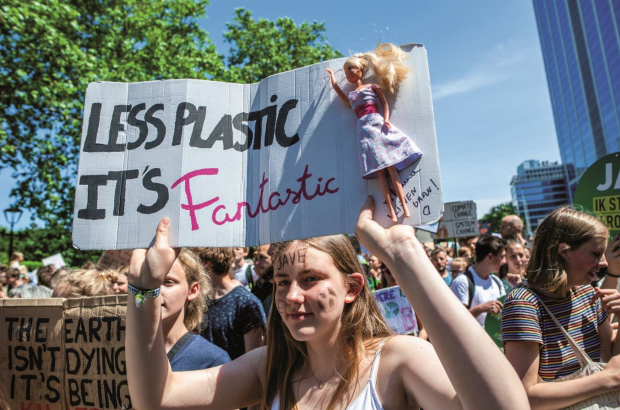- Daily & Weekly newsletters
- Buy & download The Bulletin
- Comment on our articles
Go for green: What more can we do to help Europe be climate neutral by 2050?
If Greta Thunberg’s rise to fame is not enough to convince the sceptics that individuals can make a difference, a look closer to home should help. From fellow school strike leaders Adelaide Charlier and Anuna de Wever to a campaign for free tap water in restaurants, individuals across the country are taking matters into their own hands. According to experts, their (and our) efforts are crucial in the battle to preserve the environment.
Already the world has seen a dramatic rise in temperature since pre-industrial times. To limit a further and inevitable temperature rise, and thereby avoid calamitous climate change, EU leaders agreed last December to the European Green Deal whose target is climate neutrality by 2050. A key means to achieve this was flagged in its communications: empowering citizens.
While there are still plenty who say ‘it’s only one bag’, ‘it’s only one flight’, ‘it’s only one straw’, sales of eco-friendly alternatives are soaring and companies are responding with green incentives such as recycling schemes (H&M’s clothes recycling for example) and discounts for using reusable cups for those ubiquitous takeaway coffees.
“Alone, the citizen can do nothing. But they can contribute to the dissemination of ideas for change. These changes are necessary and are not just a passing fashion,” says Edwin Zaccai, professor at the Université Libre de Bruxelles (ULB) and director of its Centre for Studies on Sustainable Development. “If more and more people are convinced, that can have an influence on market trends.”
At least as important as changing our coffee cup is changing our mindset. According to Zaccai, we can all address the following five areas: get informed; work out your carbon footprint; think about your transport (could you find an alternative to an intercontinental flight?); make your home more energy efficient (insulation is key); and push for change at work. “The citizen’s ecological concerns do not stop when opening the door to the workplace. It’s clear that in posts of responsibility, but also in other functions, we can make a big difference.”
In fact, throughout the day the choices we make can make a big difference. Pascale Zoetaert, a member of Schaerbeek organic supermarket Bees Coop, which started as small group of individuals and is now a flourishing business, says: “When you think of buying something new, ask yourself ‘can I find it second hand?’ and think how it could be recycled or reused. Shops are very good at creating needs that we don’t have.”
Shopping aside – though it’s worth noting that the fashion industry is the world’s second largest polluter after oil and gas – we should not consider ourselves powerless as political actors, Zaccai says. “Citizens not only express themselves in terms of consumption but also in activities and political choices. Today, numerous political representatives from different parties support these [environmental] orientations. It’s possible to encourage them and to give them confidence to follow their course.”
We can even make a statement with our banking choices, according to Zaccai. “A major issue at stake concerns investments in projects linked to sustainable development and low-carbon energy. It’s certainly a defining action which will make a difference in the years to come,” he says.
For those who want to see broader changes beyond their shopping basket, in such an open society as Belgium, it really is possible to get your message heard and to see change happen quickly. Using Facebook, Sarah Ehrlich founded the Free Tap Water in Belgian Restaurants campaign, which encourages more and more establishments to offer tap water rather than carbon footprint-heavy bottled water. “I didn’t even know how to tag on Facebook,” she says. “But it’s up to us as individuals to do our thing and speak out, politely and respectfully. And you will be heard if a nobody like me can do it.”
In the end, individuals want to know their actions will make enough difference. Those who argue ‘it’s only one bag’ usually follow up by pointing to the world’s worst culprits – heavy industry. Zaccai says it’s crucial for governments to ensure that the polluter pays and that it’s to be expected that our individual efforts will take some time to bear fruit.
Can we meet the 2050 target of carbon neutrality? Zaccai: “The important thing is that these climate and environmental issues remain like a compass that will not change course in the years and decades to come. It’s possible!”
Find out more:
- Carbon footprint calculators footprint.wwf.org.uk, carbonfootprint.com
- Brussels Environment: Government department with useful information on local projects
- Bees Coop: Organic cooperative supermarket in Schaerbeek
- Free Tap Water in Belgian Restaurants Facebook page
This article first appeared in ING Expat Time


















